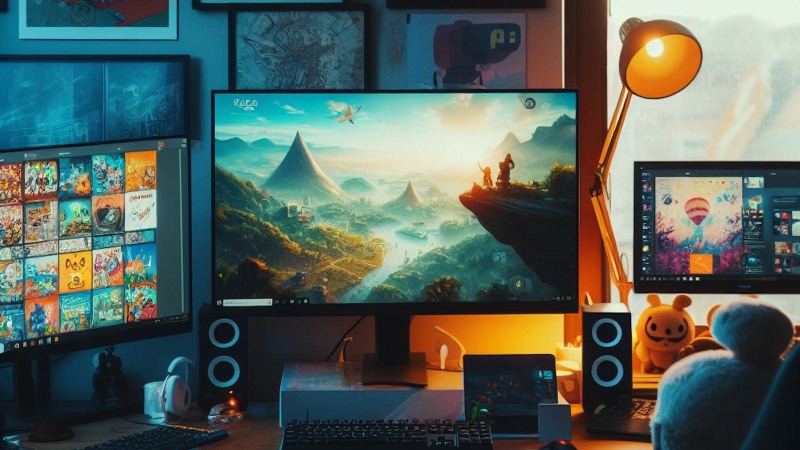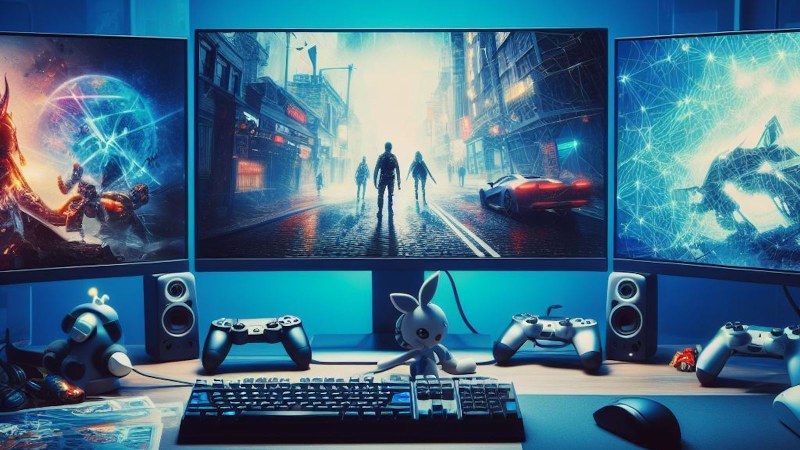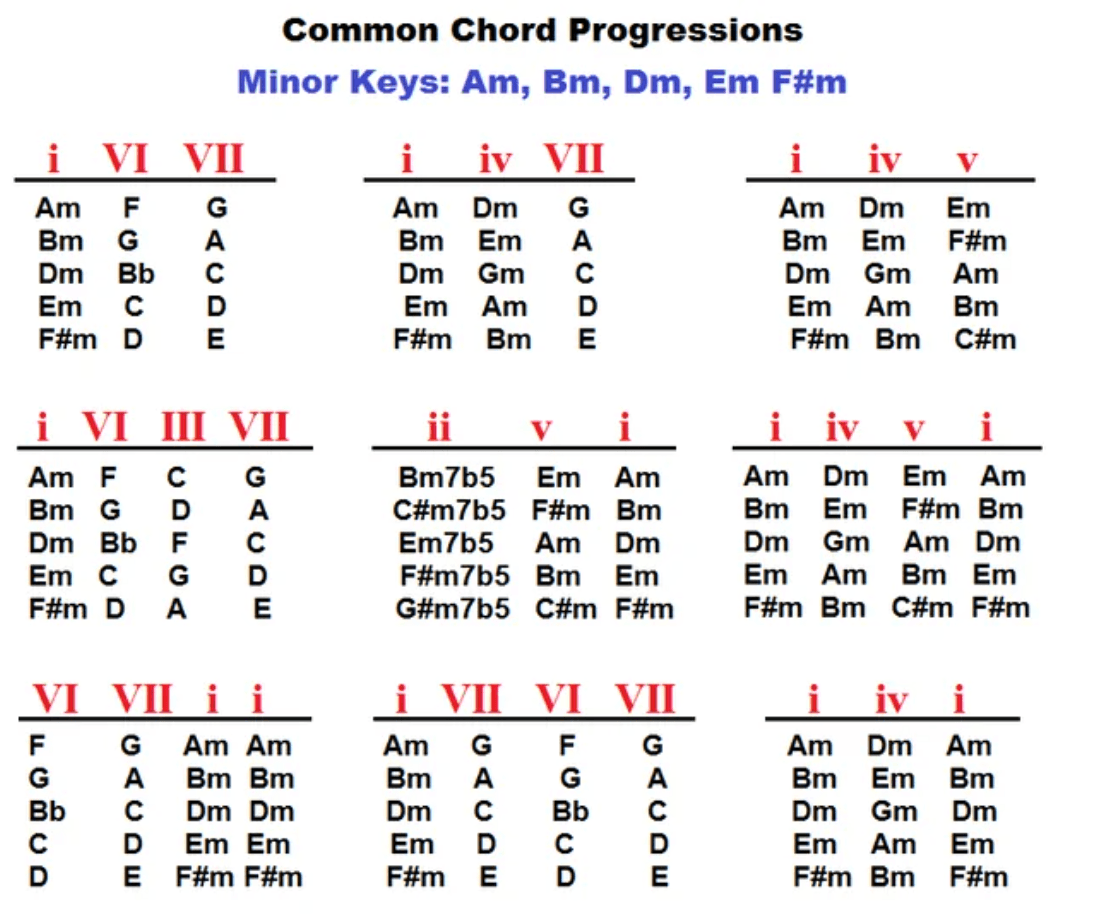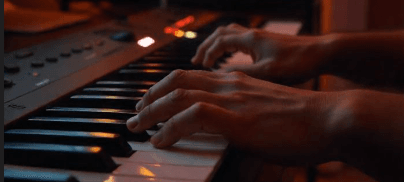Step into the ultimate guide for gaming music AI creation! Harness the power of innovative AI music prompts to score your game's universe, transforming every level into a uniquely epic experience.

The Symphony of Game Vibes: Why the Right Sound Matters
In the gaming arena, music is the unseen force that shapes the player's journey, an essential thread in the tapestry of game design.
Far from being a mere backdrop, it's the pulse that gives audio production its heart and soul.
The Emotional Compass of Gaming
Setting the Mood
Music is the emotional compass of a game. It's not just about the notes or the rhythm; it's about the feeling that music invokes.
A well-crafted AI music prompt can turn a simple scene into a memorable experience, whether it's the adrenaline rush in a battle sequence or the sweeping nostalgia of an unfolding adventure.
Driving the Action
Dynamic scores are crucial in driving the action forward.
The tempo and intensity of the soundtrack can keep players on the edge of their seats. Bold, fast-paced music can accelerate the heart rate, making a chase scene feel all the more desperate.
Guiding the Player's Emotion
A subtle yet powerful aspect of game music is its ability to guide the player's emotions.
The key to impactful audio AI tool implementation is understanding how music influences mood and decision-making, whether it's instilling courage before an in-game challenge or evoking empathy during a character's plight.
Also: See the top AI Audio Production Tools for Music Creation
The Technical Symphony: Crafting Scores with AI
The Art of Key Selection
Selecting the right key is crucial when defining the vibe of game levels or scenes.
Major keys might signal joy and victory, while minor keys could underscore stealth and intrigue, with AI music tools adeptly tailoring these nuances.
Genre Fusion for Rich Soundscapes
Game music often transcends traditional genre boundaries, creating rich soundscapes that enhance world-building.
The flexibility of AI allows composers to merge genres, crafting unique auditory experiences that echo the game's visual and narrative diversity.
Tempo: The Rhythm of Gameplay
The tempo of game music goes hand-in-hand with gameplay pace.
AI music prompts can generate scores with the perfect BPM to match the speed of on-screen actions, ensuring that the music synchronizes seamlessly with the player's experience.
Keywords: The Descriptive Powerhouses
Incorporating the right keywords into AI music prompts is akin to giving direction to an orchestra.
Keywords like 'haunting', 'exhilarating', or 'tranquil' can guide the AI to produce music that fits the intended atmosphere of the game.
Crafting Game Atmospheres: A How-To Guide
Discover how to utilize AI music tools to forge the perfect auditory experience for each genre, ensuring your game's atmosphere is not just background noise, but a defining feature of the gameplay experience. Get ready to shape your game's auditory identity and captivate your audience from the first note:

High-Octane Action: Driving Beats for Thrilling Gameplay
- Vibe: Adrenaline-fueled, Intense
- Key: D Minor
- Genre: Electronic, Rock
- BPM: 140-150
- Keywords: Intense, Thrilling, Fast-paced
- Explanation: High-energy music mirrors the pulse of action-packed sequences, enhancing the on-screen frenzy.
Mystical Quests: Enchanting Melodies for Exploration
- Vibe: Magical, Curious
- Key: G Major
- Genre: Orchestral, Ambient
- BPM: 80-90
- Keywords: Wonder, Enchantment, Exploration
- Explanation: The ethereal sounds of orchestral and ambient music evoke a sense of wonder, perfect for exploration.
Heartfelt Narratives: Emotional Scores for Storytelling
- Vibe: Poignant, Emotional
- Key: B Flat Major
- Genre: Cinematic, Solo Piano
- BPM: 50-60
- Keywords: Emotional, Story-driven, Deep
- Explanation: Slower tempos and major keys blend to tug at heartstrings, complementing narrative-driven games.
Stealth and Strategy: Ambient Soundscapes for Tense Gameplay
- Vibe: Covert, Calculative
- Key: F# Minor
- Genre: Minimalist, Sound Effects
- BPM: 90-100
- Keywords: Stealthy, Strategic, Tense
- Explanation: In stealth and strategy games, the music is a subtle undercurrent, a minimalist score or cleverly designed sound effects in F# Minor that heighten the tension and complement the mental gymnastics of plotting the next move.
Sci-Fi and Cyberpunk: Synthesized Rhythms for Futuristic Worlds
- Vibe: Innovative, Edgy
- Key: C Minor
- Genre: Synthwave, Industrial
- BPM: 110-120
- Keywords: Futuristic, Cybernetic, Pulse
- Explanation: The synthesized rhythms and C Minor key create an innovative and edgy backdrop for science fiction and cyberpunk games, where the music is as forward-thinking as the game's concept, often incorporating industrial and synthwave elements to match the cybernetic pulse of these worlds.
Fantasy Adventures: Orchestral Epics for Heroic Journeys
- Vibe: Epic, Adventurous
- Key: E Flat Major
- Genre: Epic Orchestral, Folk
- BPM: 70-85
- Keywords: Heroic, Majestic, Quest
- Explanation: For fantasy adventure games, the music swells into epic orchestral pieces in E Flat Major, with grandiose compositions that evoke the majesty of mythical lands and the bravery of quests undertaken by the heroes within.
Horror and Suspense: Dissonant Harmonies for Chilling Experiences
- Vibe: Ominous, Tense
- Key: A Diminished
- Genre: Ambient, Experimental
- BPM: Variable
- Keywords: Chilling, Suspenseful, Dark
- Explanation: The A Diminished key provides dissonant harmonies perfect for horror and suspense games, where the music creeps in with ambient and experimental tones to craft chilling and suspenseful atmospheres, often with variable BPMs to unsettle players and build up the dark, ominous mood.
Casual and Indie: Light Melodies for Engaging Play
- Vibe: Fun, Engaging
- Key: C Major
- Genre: Indie Pop, Acoustic
- BPM: 115-125
- Keywords: Light-hearted, Catchy, Playful
- Explanation: Casual and indie games often feature light melodies in C Major that are engaging and fun, drawing from indie pop or acoustic genres to create a catchy, playful atmosphere that makes for an approachable and delightful gaming experience.
Retro and Arcade: Chip Tune Beats for Nostalgic Vibes
- Vibe: Nostalgic, Retro
- Key: A Major
- Genre: Chiptune, 8-bit
- BPM: 100-120
- Keywords: Retro, Pixelated, Bouncy
- Explanation: Retro and arcade games thrive on nostalgia, often employing chip tune beats and 8-bit sounds in A Major to evoke memories of the pixelated era. These bouncy, energetic tracks, with their distinctive BPM range, instantly transport players back to the golden age of arcade gaming.
Sports and Racing: Pulse-Raising Rhythms for Competitive Gameplay
- Vibe: Energetic, Competitive
- Key: D Major
- Genre: Rock, Electronic Dance Music (EDM)
- BPM: 130-140
- Keywords: Pulse-raising, Dynamic, Intense
- Explanation: The competitive spirit of sports and racing games is matched by pulse-raising rhythms in D Major. Rock and EDM genres fuel the dynamic, high-energy atmosphere necessary for the intense, fast-paced world of competitive gameplay.
Puzzle and Logic Games: Cognitive Melodies for Problem-Solving
- Vibe: Pensive, Engaging
- Key: G Minor
- Genre: Minimalist, Classical
- BPM: 50-70
- Keywords: Thoughtful, Concentrated, Intricate
- Explanation: Puzzle and logic games demand a soundscape that promotes concentration and cognitive engagement. G Minor offers a thoughtful vibe, while minimalist and classical genres provide intricate melodies that encourage players to delve into problem-solving without overwhelming distraction.
Open World Exploration: Expansive Soundtracks for Discovery
- Vibe: Expansive, Wondrous
- Key: F Major
- Genre: World Music, Ambient
- BPM: 60-80
- Keywords: Expansive, Immersive, Majestic
- Explanation: The boundless terrains of open-world games are complemented by expansive soundtracks in F Major. World music and ambient genres offer an immersive experience, with majestic themes that underscore the vastness and wonder of exploration and discovery.
Multiplayer and Co-op: Upbeat Anthems for Team Spirit
- Vibe: Upbeat, Cooperative
- Key: B Major
- Genre: Pop, Funk
- BPM: 110-130
- Keywords: Upbeat, Teamwork, Vibrant
- Explanation: The collaborative nature of multiplayer and co-op games is amplified by upbeat anthems in B Major. Pop and funk genres, known for their vibrant and catchy tunes, foster a sense of teamwork and shared excitement, enhancing the cooperative gameplay experience.
Battle Royales and Competitive Shooters: Intense Scores for High Stakes
- Vibe: Aggressive, Exhilarating
- Key: E Minor
- Genre: Hard Rock, Dubstep
- BPM: 150-160
- Keywords: Aggressive, Heart-pounding, Adrenaline
- Explanation: The high stakes and competitive nature of battle royales and shooters are matched by aggressive and exhilarating scores in E Minor. Hard rock and dubstep with fast BPMs provide a heart-pounding, adrenaline-fueled backdrop that keeps players engaged and on high alert.
Survival and Horror: Ambient Textures for Menacing Atmospheres
- Vibe: Creepy, Suspenseful
- Key: B Flat Minor
- Genre: Drone, Dark Ambient
- BPM: Variable, often slow or erratic
- Keywords: Menacing, Ominous, Tension
- Explanation: Survival and horror games rely on ambient textures and B Flat Minor keys to create menacing and suspenseful atmospheres. The drone and dark ambient genres, with their variable BPMs, are perfect for building tension and a sense of impending dread.
Simulations and Builders: Calming Tunes for Creative Spaces
- Vibe: Relaxed, Inventive
- Key: C Sharp Major
- Genre: Lo-fi, Chillwave
- BPM: 70-90
- Keywords: Calming, Creative, Mellow
- Explanation: Simulation and builder games offer a more relaxed vibe that encourages creativity, often featuring calming tunes in C Sharp Major. Lo-fi and chillwave genres with mellow BPMs create a soothing environment that stimulates the player's imagination and innovation.
Role-Playing Games (RPGs): Dynamic Themes for Epic Quests
- Vibe: Dynamic, Story-rich
- Key: A Flat Major
- Genre: Symphonic Metal, Epic Trance
- BPM: 85-95
- Keywords: Quest, Fantasy, Immersive
- Explanation: RPGs require dynamic themes to match their story-rich quests, often utilizing A Flat Major for its heroic and uplifting sound. Symphonic metal and epic trance provide immersive soundscapes that enhance the fantasy elements and the depth of the game's narrative.
Mobile and Casual Games: Catchy Melodies for Quick Play
- Vibe: Light-hearted, Accessible
- Key: G Sharp Major
- Genre: Bubblegum Pop, Electro Pop
- BPM: 125-135
- Keywords: Catchy, Fun, Engaging
- Explanation: Mobile and casual games benefit from catchy melodies in G Sharp Major that are light-hearted and accessible. Bubblegum pop and electro pop with upbeat BPMs are ideal for engaging players in quick play sessions, offering a fun and addictive musical backdrop.
Finding the Right Tone: Questions to Shape Your Game's Soundtrack
Creating a compelling soundtrack is a pivotal step in game development.The right music can elevate a game from good to unforgettable.
To achieve this, it's essential to ask the right questions that will guide you in utilizing AI music prompts and audio production tools to craft a soundtrack that resonates with your vision.
Analyzing the Game's Genre
Matching Music to Genre Expectations
- What are the conventional music styles associated with my game's genre? Each genre has its musical expectations—fast-paced tracks for action games, serene melodies for puzzles. Identifying these can set a foundation for the mood you're aiming to establish.
Breaking the Mold with Innovative Scores
- How can I use music to add a fresh perspective to my game's genre? While sticking to genre conventions can be safe, sometimes the most memorable experiences come from unexpected musical choices that challenge the norm.
Visual and Auditory Harmony
Complementing the Game's Visuals
- How does my game's visual aesthetic influence the music I choose? The visual elements of your game should harmonize with the soundtrack. A dystopian cyberpunk city calls for different sounds than a bright and colorful fantasy world.
Creating an Auditory Palette
- What instruments and sounds will best complement my game's graphics and art style? The choice of instruments and the texture of the sound can greatly enhance the visual experience, whether it's digital sounds for sci-fi or acoustic instruments for historical settings.
Emotionally Resonant Soundscapes
Evoking the Desired Emotional Response
- What emotions do I want to evoke in players at different points in the game? Music is a powerful emotional trigger. Decide whether you want to instill fear, excitement, sadness, or tranquility, and let these emotions guide your musical choices.
Enhancing Gameplay with Affective Tones
- How can music enhance the gameplay experience? Consider how music can support gameplay elements such as increasing tension during a boss fight or providing relief after a challenging segment.
Utilizing AI Music Tools Effectively
Tailoring AI Music Prompts
- How can I tailor AI music prompts to generate the ideal soundtrack for my game? AI tools can be fine-tuned with specific parameters like key, genre, and BPM to generate music that aligns with your game's atmosphere.
The Role of Keywords in AI Music Generation
- What keywords should I use to guide the AI in creating the soundtrack? Keywords are essential in guiding AI music tools to produce tracks that meet your specific needs, acting as descriptors that capture the essence of the scene or level.
By thoughtfully considering these questions, game developers and composers can use AI music tools to create soundtracks that not only underscore the gaming experience but become integral to the game's identity.
The right tone sets the stage for immersive gameplay, ensuring that every note and beat enriches the player's journey through the game's world.
Empowering Your Audio Vision with Empress
Elevate your game's soundscape with Empress's advanced AI music tools. Craft captivating audio narratives and immerse players in your game's universe through the transformative power of sound.
FAQs: Leveraging AI in Game Music Production
Q1: How can an AI music tool enhance my game's soundtrack?
An AI music tool can enhance a game's soundtrack by quickly generating diverse compositions that match the game's tone, saving time and allowing for easy experimentation with different musical styles.
Q2: Can I tailor AI-generated music to specific gaming genres?
Yes, you can tailor AI-generated music to specific gaming genres by setting the AI parameters to produce the desired styles, instruments, and harmonies characteristic of that genre.
Q3: What's the best way to select a music key for my game's mood?
The best way to select a music key for your game's mood is to understand the emotional associations of different keys—major for uplifting moods, minor for more somber tones—and aligning them with the game's narrative.
Q4: Which BPMs work best for strategic gameplay?
For strategic gameplay, BPMs that are moderate and not too distracting—usually in the range of 60-100—work best to keep players engaged without overwhelming them.
Q5: How do I integrate keywords into my music prompt for a horror game?
To integrate keywords into your music prompt for a horror game, choose words that encapsulate the essence of horror, such as "eerie," "suspenseful," or "dissonant," guiding the AI to create a fittingly tense and atmospheric soundtrack.
Follow the future of music with Empress. Check out our blog to learn how you can effectively use these AI music tools.



